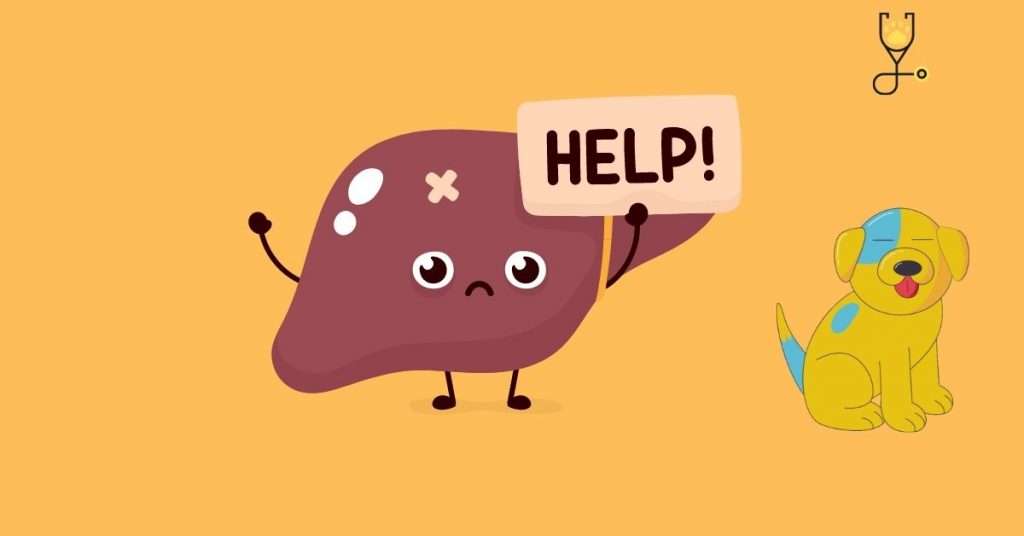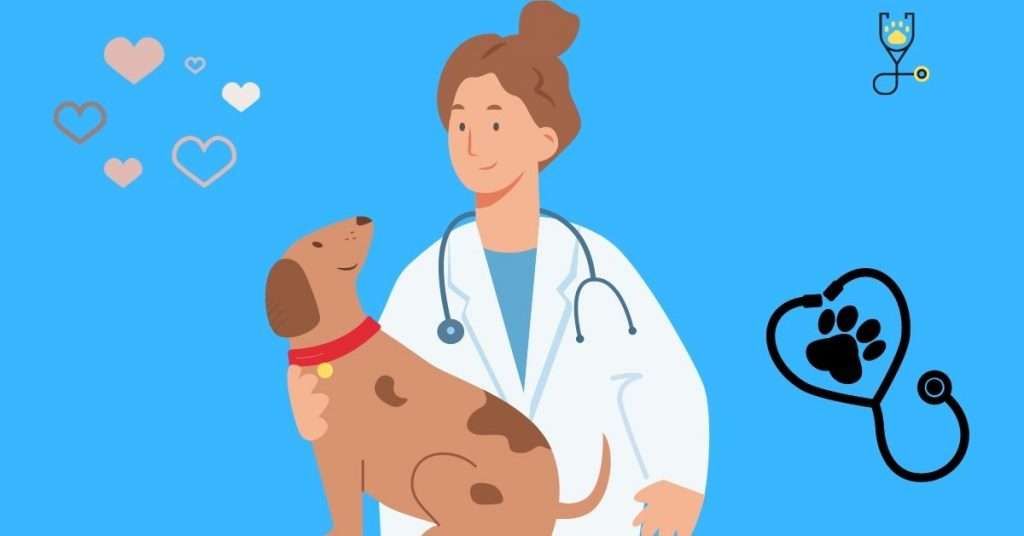Are you a dog owner? If so, it’s important to be aware of the signs and symptoms of liver problems in dogs. As with many medical conditions, early detection is key to successful treatment. So what should you watch out for? Keep reading to learn more.
Learn More: Is Turmeric Good for My Dog?
What are the signs of liver problems in dogs?

1. Jaundice: This is when the whites of your dog’s eyes and/or their gums start to turn yellow.
2. Loss of appetite: If your dog doesn’t seem interested in food or keeps leaving their meals uneaten, it could be a sign that something is wrong with their liver.
3. Fatigue: Dogs with liver problems often seem tired and lethargic.
4. Weight loss: This can happen even if your dog’s appetite is normal.
5. Vomiting and diarrhea: These are common symptoms of many different illnesses, but they can also be indicative of liver disease.
6. Abdominal pain: Liver problems can cause pain and discomfort in your dog’s abdomen.
7. increased thirst and urination: As the liver becomes damaged, it may not be able to function properly. This can lead to an increase in thirst and urination.
8. seizures: In some cases, liver disease can cause seizures.
Read more: How to Train a Dog That Is Not Food Motivated
What can cause liver problems in dogs?
There are many possible causes of liver problems in dogs, including
Infection: Bacterial, viral, and parasitic infections can all lead to liver problems.
Toxins: Certain toxins, such as those found in some plants and mushrooms, can cause liver damage.
Cancer: Liver cancer is relatively rare in dogs but can sometimes be the underlying cause of liver disease.
Autoimmune disease: In some cases, the body’s immune system may attack the liver, leading to inflammation and damage.
Diabetes: Dogs with diabetes are at increased risk for developing liver problems.
Nutritional deficiencies: A lack of certain nutrients in the diet can lead to liver problems.
Read More: How to Save Money on Dog Food
What is the treatment for liver disease in dogs?
-Treatment for liver disease will vary depending on the underlying cause.
-If your dog has liver disease, it’s important to work with your veterinarian to create a treatment plan that is best for them.
-In some cases, liver disease may be reversible with treatment. However, in other cases, it may progress to liver failure, which can be fatal.
-If you think your dog may have liver problems, it’s important to seek veterinary care as soon as possible. Early diagnosis and treatment can improve the chances of a successful outcome.

- Liver disease is a serious condition that can be fatal if not treated. If you think your dog may have liver problems, it’s important to seek veterinary care as soon as possible. Early diagnosis and treatment can improve the chances of a successful outcome.
Read more about: Why is My Dog Not Eating? – Causes & Treatments
Can liver problems be prevented in dogs?
The best way to prevent liver problems in dogs is to provide them with a balanced diet and regular exercise and weight control: Obesity is a risk factor for many diseases, including liver disease. Keeping your dog at a healthy weight can help reduce its risk of developing liver problems.
Avoiding toxins: Certain toxins, such as those found in some plants and mushrooms, can cause liver damage. If you think your dog may have ingested a toxin, it’s important to seek veterinary care immediately.
Providing proper nutrition: A lack of certain nutrients in the diet can lead to liver problems. Working with your veterinarian to ensure that your dog is getting all the nutrients they need can help prevent liver disease.
Learn More: The Facts About Vitamin and Mineral Supplements for Dogs
How can I help my dog if he has liver problems?
1. If your dog has liver problems, it’s important to work with your veterinarian to create a treatment plan that is best for them.
2. In some cases, liver disease may be reversible with treatment. However, in other cases, it may progress to liver failure, which can be fatal.
3. If you think your dog may have liver problems, it’s important to seek veterinary care as soon as possible. Early diagnosis and treatment can improve the chances of a successful outcome.
4. The best way to prevent liver problems in dogs is to provide them with a balanced diet and regular exercise and weight control: Obesity is a risk factor for many diseases, including liver disease. Keeping your dog at a healthy weight can help reduce its risk of developing liver problems.
5. Avoiding toxins: Certain toxins, such as those found in some plants and mushrooms, can cause liver damage. If you think your dog may have ingested a toxin, it’s important to seek veterinary care immediately.
6. Providing proper nutrition: A lack of certain nutrients in the diet can lead to liver problems. Working with your veterinarian to ensure that your dog is getting all the nutrients they need can help prevent liver disease.
The prognosis for dogs with liver disease
The prognosis for dogs with liver disease depends on the underlying cause. In some cases, the disease may be reversible with treatment. However, in other cases, it may progress to liver failure, which can be fatal. If you think your dog may have liver problems, it’s important to seek veterinary care as soon as possible. Early diagnosis and treatment can improve the chances of a successful outcome.
Conclusion
Liver disease is a serious condition that can be fatal if not treated. If you think your dog may have liver problems, it’s important to seek veterinary care as soon as possible. Early diagnosis and treatment can improve the chances of a successful outcome. The best way to prevent liver problems in dogs is to provide them with a balanced diet and regular exercise and weight control. Avoiding toxins and providing proper nutrition can also help prevent liver disease.
Learn All About Common Health Issues in Dogs & Their Prevention in our detailed guide here.
FAQs
What is the prognosis for dogs with liver disease?
The prognosis for dogs with liver disease depends on the underlying cause of the disease and how early it is diagnosed and treated. In some cases, liver disease may be reversible with treatment. However, in other cases, it may progress to liver failure, which can be fatal.
Can liver problems be prevented in dogs?
The best way to prevent liver problems in dogs is to provide them with a balanced diet and regular exercise and weight control.
What are the signs and symptoms of liver disease in dogs?
The signs and symptoms of liver disease in dogs depend on the underlying cause of the disease. However, some common signs and symptoms include weight loss, appetite loss, vomiting, diarrhea, abnormal stool, jaundice (yellowing of the skin and eyes), abdominal pain, and weakness. If you notice any of these signs or symptoms in your dog, it’s important to seek veterinary care as soon as possible.
What are the treatment options for dogs with liver disease?
The treatment options for dogs with liver disease depend on the underlying cause of the disease and how advanced it is. In some cases, liver disease may be reversible with treatment. However, in other cases, it may progress to liver failure, which can be fatal. If you think your dog may have liver problems, it’s important to seek veterinary care as soon as possible. Early diagnosis and treatment can improve the chances of a successful outcome.